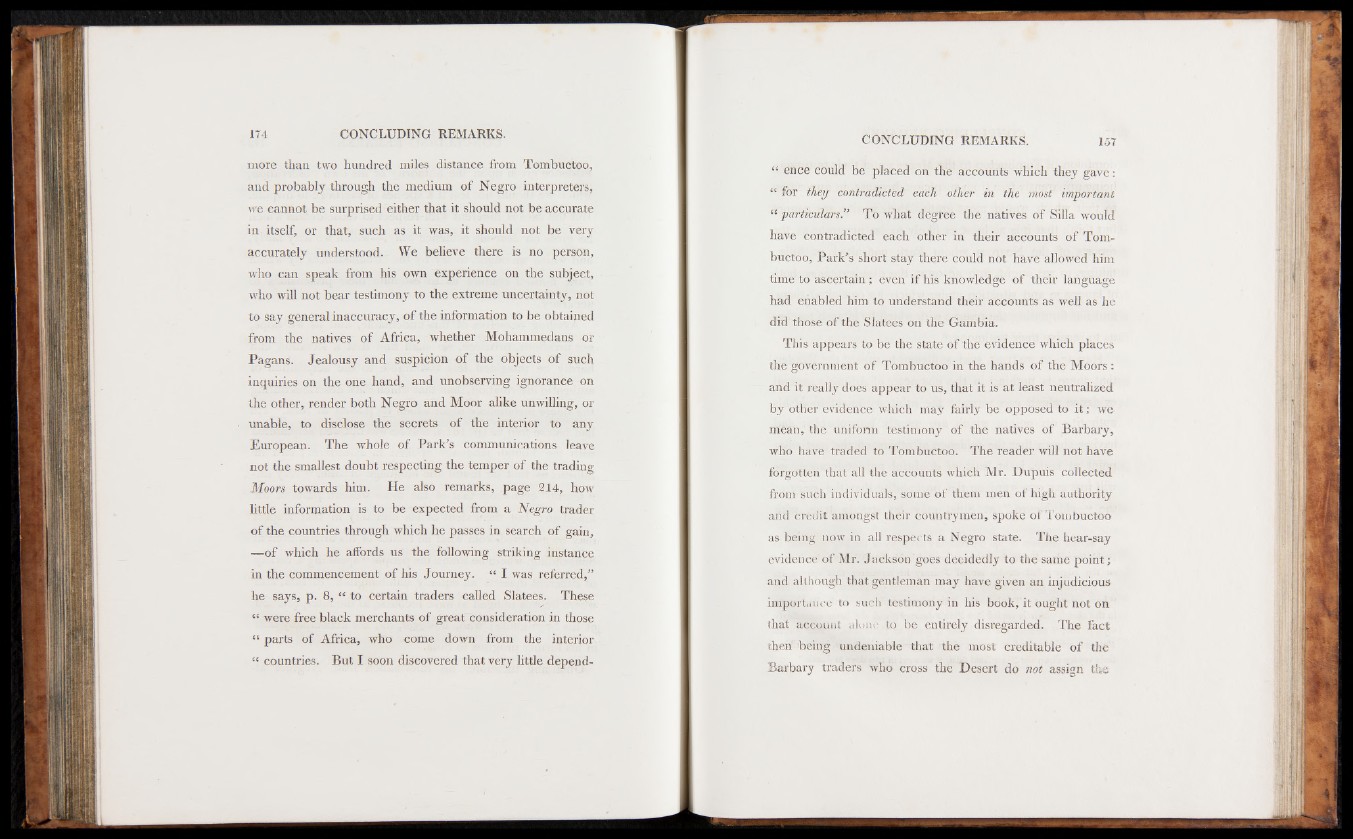
more than two hundred miles distance from Tombuctoo,
and probably through the medium of Negro interpreters,
we cannot be surprised either that it should not be accurate
in itself, or that, such as it was, it should not be very
accurately understood. We believe there is no person,
who can speak from his own experience on the subject,
who will not bear testimony to the extreme uncertainty, not
to say general inaccuracy, of the information to be obtained
from the natives of Africa, whether Mohammedans or
Pagans. Jealousy and suspicion of the objects of such
inquiries on the one hand, and unobserving ignorance on
the other, render both Negro and Moor alike unwilling, or
unable, to disclose the secrets of the interior to any
European. The whole of Park’s communications leave
not the smallest doubt respecting the temper of the trading
Moors towards him. He also remarks, page 214, how
little information is to be expected from a Negro trader
of the countries through which he passes in search of gain,
—of which he affords us the following striking instance
in the commencement of his Journey. “ I was referred,”
he says, p. 8, “ to certain traders called Slatees. These
“ were free black merchants of great consideration in those
“ parts of Africa, who come down from the interior
“ countries. But I soon discovered that very little depend-
CONCLUDING REMARKS. 157
“ ence could be placed on the accounts which they gave:
“ for they contradicted each other in the most important
“ particulars.” To what degree the natives of Silla would
have contradicted each other in their accounts of Tombuctoo,
Park’s short stay there could not have allowed him
time to ascertain; even if his knowledge of their language
had enabled him to understand their accounts as well as he
did those of the Slatees on the Gambia.
This appears to be the state of the evidence which places
the government of Tombuctoo in the hands of the Moors :
and it really does appear to us, that it is at least neutralized
by other evidence which may fairly be opposed to i t ; we
mean, the uniform testimony of the natives of Barbary,
who have traded to Tombuctoo. The reader will not have
forgotten that all the accounts which Mr. Dupuis collected
from such individuals, some of them men of high authority
and credit amongst their countrymen, spoke of Tombuctoo
as being now in all respects a Negro state. The hear-say
evidence of Mr. Jackson goes decidedly to the same point;
and although that gentleman may have given an injudicious
importance to such testimony in his book, it ought not on
that account alone to be entirely disregarded. The fact
then being undeniable that the most creditable of the
Barbary traders who cross the Desert do not assign the